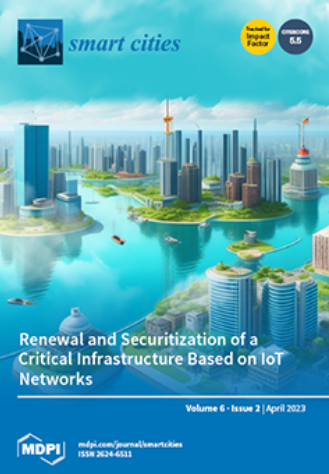优化智能校园解决方案:一种证据推理决策支持工具
IF 5.5
Q1 ENGINEERING, ELECTRICAL & ELECTRONIC
引用次数: 1
摘要
智能技术由于其降低能源成本、提高生产力和可持续性的潜力,在各个行业越来越普遍。智能校园是实施智能技术的教育机构,是这些技术的具体应用。然而,由于资金和文化限制等各种限制,实施现有的智能技术往往是不可行的。作为回应,本研究开发了一种基于证据推理(ER)方法的数学决策工具,并在Python中实现。该工具旨在帮助大学优先考虑适合其特定需求的智能校园解决方案。该研究将全面的文献综述与利益相关者调查的见解相结合,以确定支撑智能校园解决方案的六个主要目标和四项基础技术。此外,还确定了智能校园解决方案的六个关键成功因素和九个功能集群,并通过ER方法进行了评估。开发的决策支持工具经过了各种统计测试的验证,被发现是高度可靠的,使其成为一种具有不同替代品和属性的通用工具,可在全球范围内使用。所提出的工具为大学提供了排名和实用程序,以根据实施成本、运营成本、维护成本、实施持续时间、资源可用性和利益相关者感知的利益等输入来确定必要的智能应用程序。本文章由计算机程序翻译,如有差异,请以英文原文为准。
Optimizing Smart Campus Solutions: An Evidential Reasoning Decision Support Tool
Smart technologies have become increasingly prevalent in various industries due to their potential for energy cost reduction, productivity gains, and sustainability. Smart campuses, which are educational institutions that implement smart technologies, have emerged as a specific application of these technologies. However, implementing available smart technologies is often not feasible due to various limitations, such as funding and cultural restrictions. In response, this study develops a mathematical decision-making tool based on the evidential reasoning (ER) approach and implemented in Python. The tool aims to assist universities in prioritizing smart campus solutions tailored to their specific needs. The research combines a comprehensive literature review with insights from stakeholder surveys to identify six principal objectives and four foundational technologies underpinning smart campus solutions. Additionally, six critical success factors and nine functional clusters of smart campus solutions are pinpointed, and evaluated through the ER approach. The developed decision-support tool underwent validation through various statistical tests and was found to be highly reliable, making it a generalized tool for worldwide use with different alternatives and attributes. The proposed tool provides universities with rankings and utilities to determine necessary smart applications based on inputs such as implementation cost, operation cost, maintenance cost, implementation duration, resource availability, and stakeholders’ perceived benefit.
求助全文
通过发布文献求助,成功后即可免费获取论文全文。
去求助
来源期刊

Smart Cities
Multiple-
CiteScore
11.20
自引率
6.20%
发文量
0
审稿时长
11 weeks
期刊介绍:
Smart Cities (ISSN 2624-6511) provides an advanced forum for the dissemination of information on the science and technology of smart cities, publishing reviews, regular research papers (articles) and communications in all areas of research concerning smart cities. Our aim is to encourage scientists to publish their experimental and theoretical results in as much detail as possible, with no restriction on the maximum length of the papers published so that all experimental results can be reproduced.
 求助内容:
求助内容: 应助结果提醒方式:
应助结果提醒方式:


